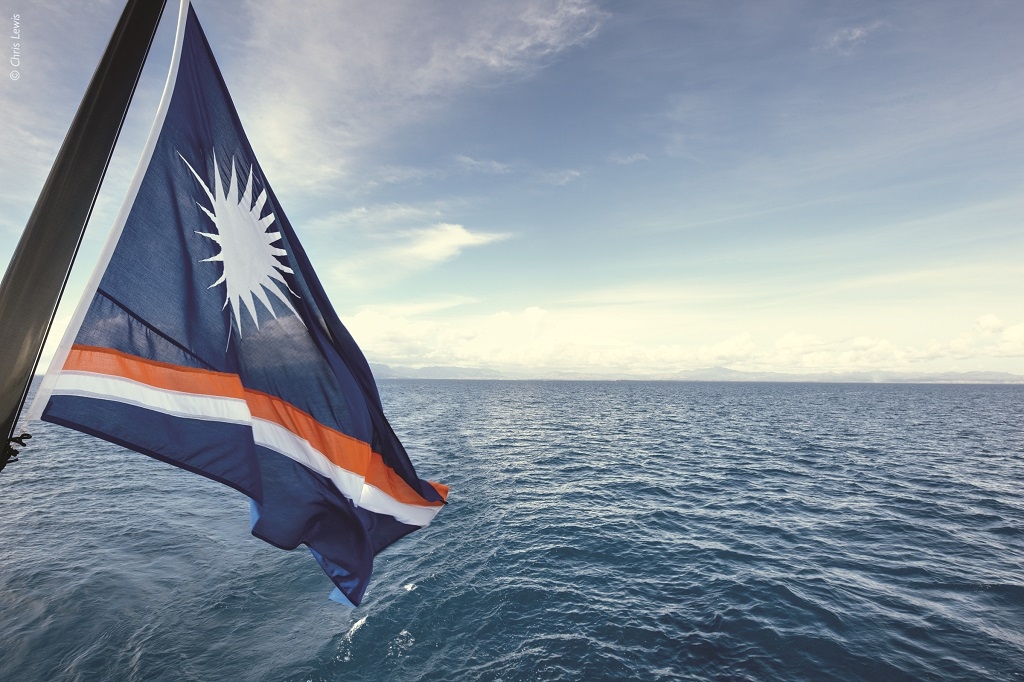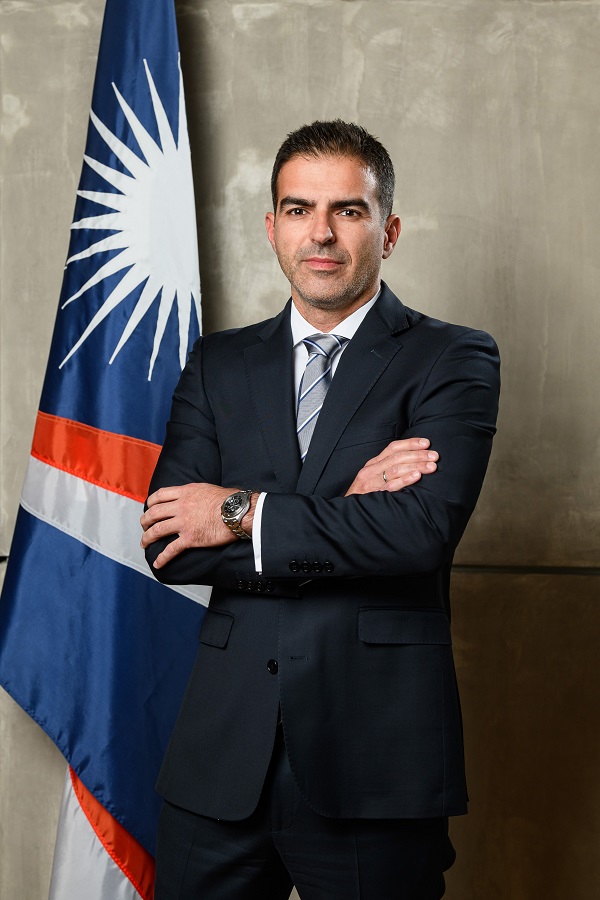Thanos Theocharis: The RMI Registry is uniquely positioned to support our owners and operators as they continue to strive toward excellence in sustainability.

Shipping is going through a period of rapid developments in its decarbonisation and alternative fuels where the Marshall Islands Registry not only monitors developments but is actively involved at all levels. Mr. Thanos Theocharis, Regulatory Affairs, European Liaison of the Registry talks to maritimes.gr about their actions both at technical and institutional level.
It refers to whether the new environmental regulations will change the criteria and conditions in order for a ship to be registered in the Registry but also what they mean for the registry itself in order to remain in the top rankings and ratings such as that of Port State Control (PSC) worldwide.
On how the Marshall Islands Registry supports the shipping company in implementing a comprehensive plan to achieve higher performance, as reflected in the ESG indicators, emphasizes that with technical experts around the world and members involved in various research and development projects green technology and sustainability, the RMI Registry is uniquely positioned to advise, provide technical assistance and support owners and operators to excellence and sustainability.
1) Shipping has begun the process of decarbonization and fossil fuel disposal. The Republic of the Marshall Islands (RMI) Registry to what extent and how it participates in the development and evolution of solutions in this direction?
 The maritime industry has embraced sustainability and a sustainable and green future. We are at the heart of a period of rapid expansion with projects, innovative ideas, and new thinking in the areas of decarbonization and alternative fuels. International Registries, Inc. and its affiliates (IRI), which provide administrative and technical support to the RMI Registry, are engaged in decarbonization efforts in two major ways. First, the RMI Registry’s technical experts participate in various collaborative industry projects aimed at evaluating and developing new technologies and alternative energies. These projects, conducted with Classification Societies, shipbuilders, shipowners, and other stakeholders, are critical to giving the industry quantitative data to assess the viability of alternative solutions. Second, the RMI is actively involved in international regulatory efforts at the International Maritime Organization (IMO) to facilitate achieving agreed decarbonization goals for the sector. Through its work on various IMO committees and working groups, the RMI strives to connect realistic and meaningful regulatory standards with the pace of technological developments in the area of reducing Greenhouse Gas (GHG) emissions from shipping.
The maritime industry has embraced sustainability and a sustainable and green future. We are at the heart of a period of rapid expansion with projects, innovative ideas, and new thinking in the areas of decarbonization and alternative fuels. International Registries, Inc. and its affiliates (IRI), which provide administrative and technical support to the RMI Registry, are engaged in decarbonization efforts in two major ways. First, the RMI Registry’s technical experts participate in various collaborative industry projects aimed at evaluating and developing new technologies and alternative energies. These projects, conducted with Classification Societies, shipbuilders, shipowners, and other stakeholders, are critical to giving the industry quantitative data to assess the viability of alternative solutions. Second, the RMI is actively involved in international regulatory efforts at the International Maritime Organization (IMO) to facilitate achieving agreed decarbonization goals for the sector. Through its work on various IMO committees and working groups, the RMI strives to connect realistic and meaningful regulatory standards with the pace of technological developments in the area of reducing Greenhouse Gas (GHG) emissions from shipping.
2) RMI continues to be a leader in Port State Control (PSC) rankings worldwide. With the new environmental regulations, do you believe that the criteria and conditions for a ship to be registered under the MI flag will become stricter? It will also be hard for the registry to remain in these top rankings and ratings?
RMI’s PSC ranking reflects a long-term commitment to quality vessel operation. It should be noted that any new international regulatory framework (environmental or otherwise) established through the IMO will be governed by non-discriminatory principles and will have to be universally adopted and implemented, regardless of flag. Therefore, criteria for registration will not necessarily become stricter for the RMI flag compared to others. However, as part of RMI’s commitment to quality, supporting shipowners in complying with any new international regulatory frameworks serves to underscore the importance and value the RMI Registry places on safe vessel operation while protecting the marine environment.
3) How do you support a shipping company in the implementation of a comprehensive plan to achieve higher performance, as reflected in the ESG (Environmental, Social and corporate Governance) indicators?
RMI flagged vessels are operated and owned by quality-oriented organizations and individuals that already consider ESG indicators whether they have a comprehensive ESG plan or not. These principals are not new, and owners and operators of RMI flagged vessels have long been focused on innovative thinking, technology, and solutions, which are important elements of good business and safe vessel operation.
The number of ESG reports published by RMI owners has grown, as investors, charterers, and other stakeholders expect shipping companies to develop long-term sustainable business practices and show not only that they are profitable, but also that they are well run and sustainable.
With technical experts around the world, and team members participating in various research and development projects looking at green technology and sustainability, the RMI Registry is uniquely positioned to advise, offer technical assistance, and support our owners and operators as they continue to strive toward excellence in sustainability. In March 2021, Clarksons Research’s World Fleet Register verified that the RMI fleet is the youngest and greenest in the world.
